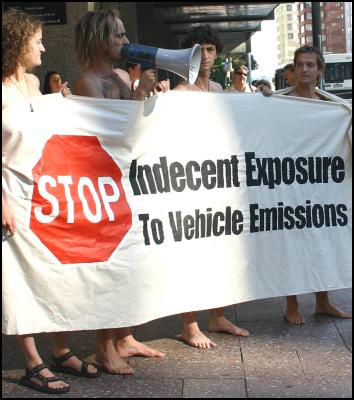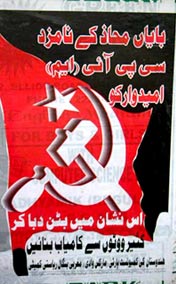
The third and final part of a speech on the apprenticeship system, that I gave to several ACT regional conferences in late 2004. Check out
Part 1 and
Part 2This part starts with the second of several steps I believe are required to restore NZ's apprenticeship system.
Broaden the System Secondly we should extend apprenticeships and cadetships back into areas like primary teaching, journalism, nursing, and new areas like computing, retail and tourism. Even some professions such as the law, surveying and accountancy should return to training at least some of their staff through apprenticeships
In Germany young people can and do apprenticeships in almost any area.The mighty German economic machine has no shortage of skilled tradespeople and technicians and very low youth unemployment.
Throughout Western Europe, it is the norm for non university bound teenagers to start their working life in an apprenticeship.
Why shouldn’t we have 60% or more of our school leavers in apprenticeships?
Start Them EarlyOnce a teenager could
leave school at 15, start an apprenticeship and be qualified at 19. Now most will leave school at 16 or 17, do a year at polytech on a pre-apprenticeship course (with a student loan), then, if they’re extremely lucky start an apprenticeship.
People in this situation have commitments and want an adult wage. They don’t want to start at the bottom and are often less teachable. Pre-apprenticeship courses are no substitute for the real thing and are often actually counter productive. Many employers complain that some of these trainees think they are above the simple tasks that real apprentices are required to learn.
Life has its hierarchies and by starting at the very bottom of the ladder, apprentices tend to learn them very well. Apprenticeships should be geared as much as possible to start in the mid teens.
Reduce Government Involvement Fourthly We should reduce government involvement in apprenticeship training as much as possible. Each industry should run its own training, to its own standards.
The 2002 budget committed an extra $41 million to “Modern Apprenticeships” over the next 4 years. Recently the government announced that it would pump in 9 million dollars to produce an extra 1,000 apprentices. That’s $9,000 per apprentice. That money will not go to apprentices or employers. It will go to Industry Training
Organisation bureaucrats.
The beauty of apprenticeship is that it is (or should be)self funding. A properly run apprenticeship system should cost the taxpayer virtually zero. In fact there should be a net gain as apprentices each pay a small amount of tax rather than taking out a student loan.
Industry should be awarding its own qualifications, so NZQA involvement could be axed and even the small polytech input could be privatized.
Governments love to bureaucratise and complicate things. A recent Human Rights Commission document on the “modern apprenticeship” scheme proposed that taxpayer funded apprentice co-ordinators should take over the role of apprenticeship recruitment from employers.
It further proposed that these co-ordinators be set recruitment quotas based on
race, sex and disability. Even worse it wants co-ordinators to be paid bonuses for recruiting from the appropriate minorities.
Do you you pay taxes so that that car can be fixed by a Tongan lesbian with a gammy
leg?
Labour’s “modern apprenticeship” scheme is an expensive,”politically correct” bureacratised scam. Don’t be fooled by it.
Industry likes to simplify. The cheaper and simpler we can make apprenticeships, the more employers will embrace them. Give employer a choice “modern apprenticeships” with “unit standards” or a simple traditional time based system. See which approach wins out.
Utilise the MilitaryFifthly we should expand the one area where government should play a role in apprentice training-the military. The Army, Navy and Air Force used to train hundreds of diesel mechanics, radio technicians, aircraft engineers, carpenters, chefs and sign writers. Some industries, such as aircraft maintenance were built largely on ex military staff.
The forces have the infrastructure and the skill base to turn out highly skilled people and we’re paying for it through our taxes anyway.
In the late 80s the Government abolished the Army cadet scheme and with it most of the army’s apprenticeship programme. Today the army employs approximately 10 apprentices a year. The situation is not much better in the Navy or what used to be our Air Force.
The coming ACT/National Government should immediately implement an extensive system of military apprenticeships. This would help both the military and future civilian employers. It would also very inexpensively increase the pool of military trained people for any future defence emergencies.
Some funding for this could come from part of the education vote which remains unspent each year. Some of the rest could come from an unused student loan budget.
Conclusion Not training apprentices costs us all. It costs us economically, through lost production and under utilization of training resources and personnel.
It costs us socially, through increased crime and anti social behavior.
Most importantly it cost thousands of young people an opportunity to build a better future for themselves and their families.
There are thousands of employers who would like to train more apprentices. There are thousands of parents who would love to see their teens in trade training. There are tens of thousands of school leavers every year who could and should be ”doing their time”. There are millions of taxpayers who would rather see their burden shared by thousands of apprentices than be forking out billions on student loans.
Politicians must realize that the people who would gain from the restoration of a real apprenticeship system, far outnumber the education bureaucrats and training providers who might lose out.
Any politician prepared to champion the apprenticeship cause will earn a lot of friends.
The near destruction of the New Zealand apprenticeship system was an act of incredible folly. Let’s not perpetuate the mistake.
Apprenticeship is an overlooked institution. Like marriage, it is a bed rock of society and like marriage, it is in trouble.
I hope ACT will seize the opportunity to champion the traditional apprenticeship system. I believe there are votes in it. I believe it would help ACT’s image to promote such a positive and popular idea.
But bugger all that, we are a party that does things because they are right.
What more reason do we need?


























